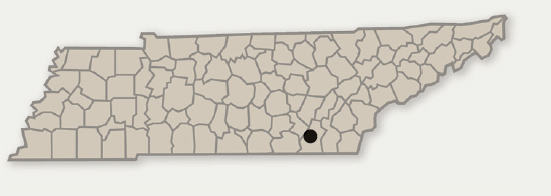Photographs by David Cox
North Chickamauga Creek Gorge State Park gets its name from the deep gorge that water and time have carved into the sandstone of Walden’s Ridge. In and rising up from this 10-mile gorge are a lovely cornucopia of old-growth forest, critters large and small, and 10 threatened or endangered species such as the federally endangered Virginia spiraea, a flowering plant from the rose family that has groups of tightly packed small white flowers.
North Chickamauga Creek Gorge might still be in its infancy as a state park, but it’s been a favorite destination for outdoor lovers since it was designated a state natural area in 1999. Previously managed by the Justin P. Wilson Cumberland Trail State Park, the area’s visitation levels were such that it made sense to make it a state park unto itself. It achieved this designation in September of last year, allowing the just over 6,000 acres of wilderness in Hamilton and Sequatchie counties to benefit from their own budget and staff.
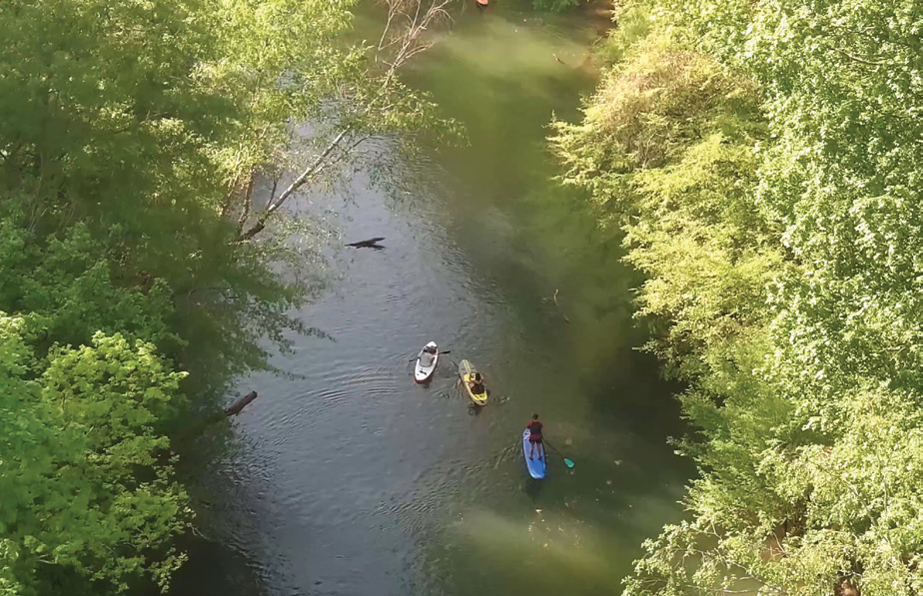
The head of that staff, Park Manager Josh Kuykendall, isn’t new to the area, however. Prior to North Chickamauga Creek Gorge becoming a state park, Kuykendall was the assistant manager at Cumberland Trail and focused on the southern part of that park, which encompassed the land that became Tennessee’s 59th state park. He’s looking forward to making improvements that will serve both the public and the varied species and landscape that need protecting.
Among the most immediate issues that need to be addressed is the parking situation. Especially on weekends, the limited parking fills up quickly. In fact, the first thing you see when you visit the park’s website is a popup window that alerts visitors to the limited parking and suggestions for nonpeak times to visit. Also of note is that there are no bathroom facilities.
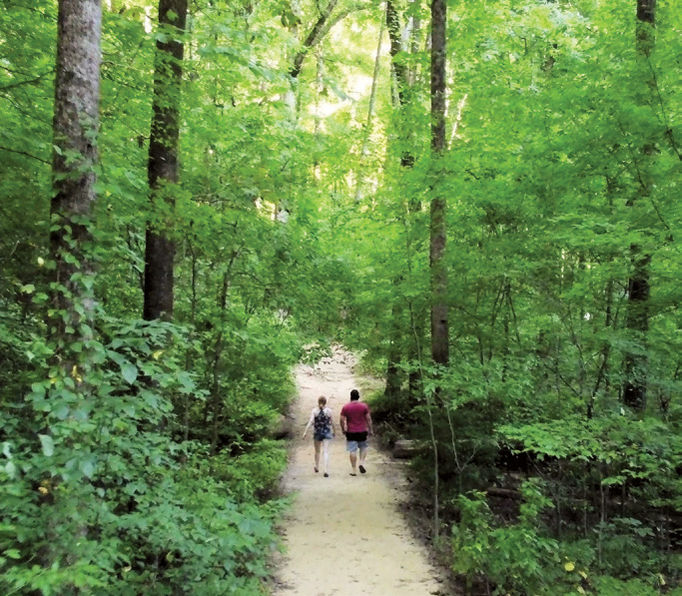
“Work on improved parking is supposed to start later this year,” Kuykendall says. “Things like programming and a visitors center will come later. We are just now starting conversations about the visitors center.”
Even though North Chickamauga Creek Gorge does not yet have the amenities travelers can find at many other state parks, there is still a wealth of enjoyable recreational opportunities available.
Hiking and swimming
One of the most popular attractions is Blue Hole, a swimming hole that requires a 1-mile hike over rugged terrain — including a creek crossing with no bridge — to access. Visitors should leave at least 30 minutes to hike back out to ensure being able to exit before the park closes each day.
The Blue Hole Trail is not the only one with water crossings. In fact, the 1.5-mile Hogskin Loop Trail has two during wet weather conditions. A portion of this trail runs concurrent to the long-distance Cumberland Trail.
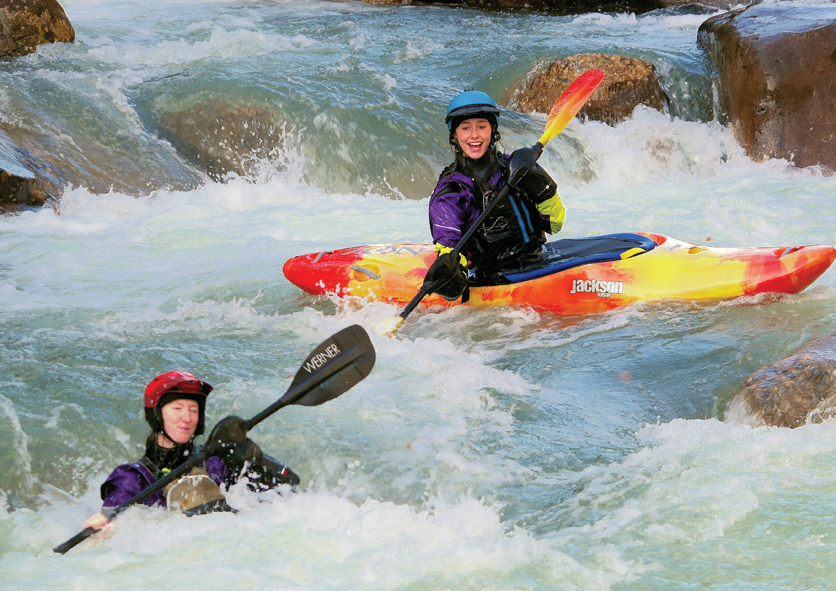
Speaking of the Cumberland Trail, 10 miles of its nearly 200 completed miles sit inside North Chickamauga Creek Gorge State Park. (When completed, the Cumberland Trail will stretch more than 300 miles from Cumberland Gap to the Tennessee River Gorge near Chattanooga.)
Finally, there is the Flipper Bend Trail, which actually has three different hiking options: the 1.4-mile Clear Branch Loop, the 2 miles of the Flipper Bend Trail and the 4-mile Flipper Bend Loop. Taken together, these are known to visitors as the Lollipop Loop. This set of trails is also open to mountain bikes, the only area of the park where they are allowed.
Fishing
There are lots of lovely fishing spots throughout the park where you can try your hand at catching smallmouth bass, redeye, sunfish or the annually stocked rainbow trout.
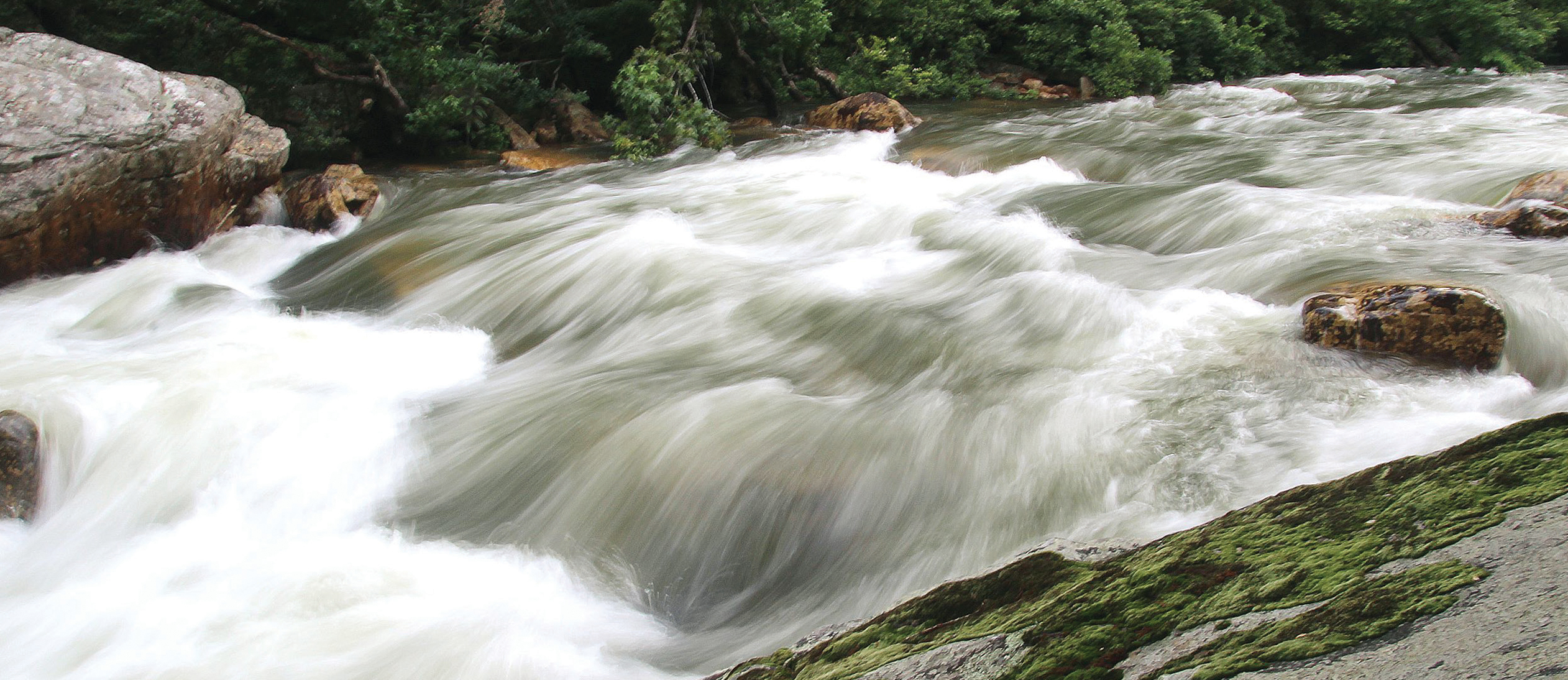
Paddling and rock climbing
For the more adventurous — and experienced — the park offers the adrenaline rush of whitewater canoeing and kayaking as well as rock climbing.
The park’s website has information on the put-in and take-out points for personal paddlecraft as well as safety information. Streams have the potential to reach Class V whitewater, which means that you must have an advanced level of experience to attempt to navigate the park’s waters. Pay attention to the park’s water level flag system for current conditions.
Likewise, those who want to rock climb in the park should be experienced in the sport.
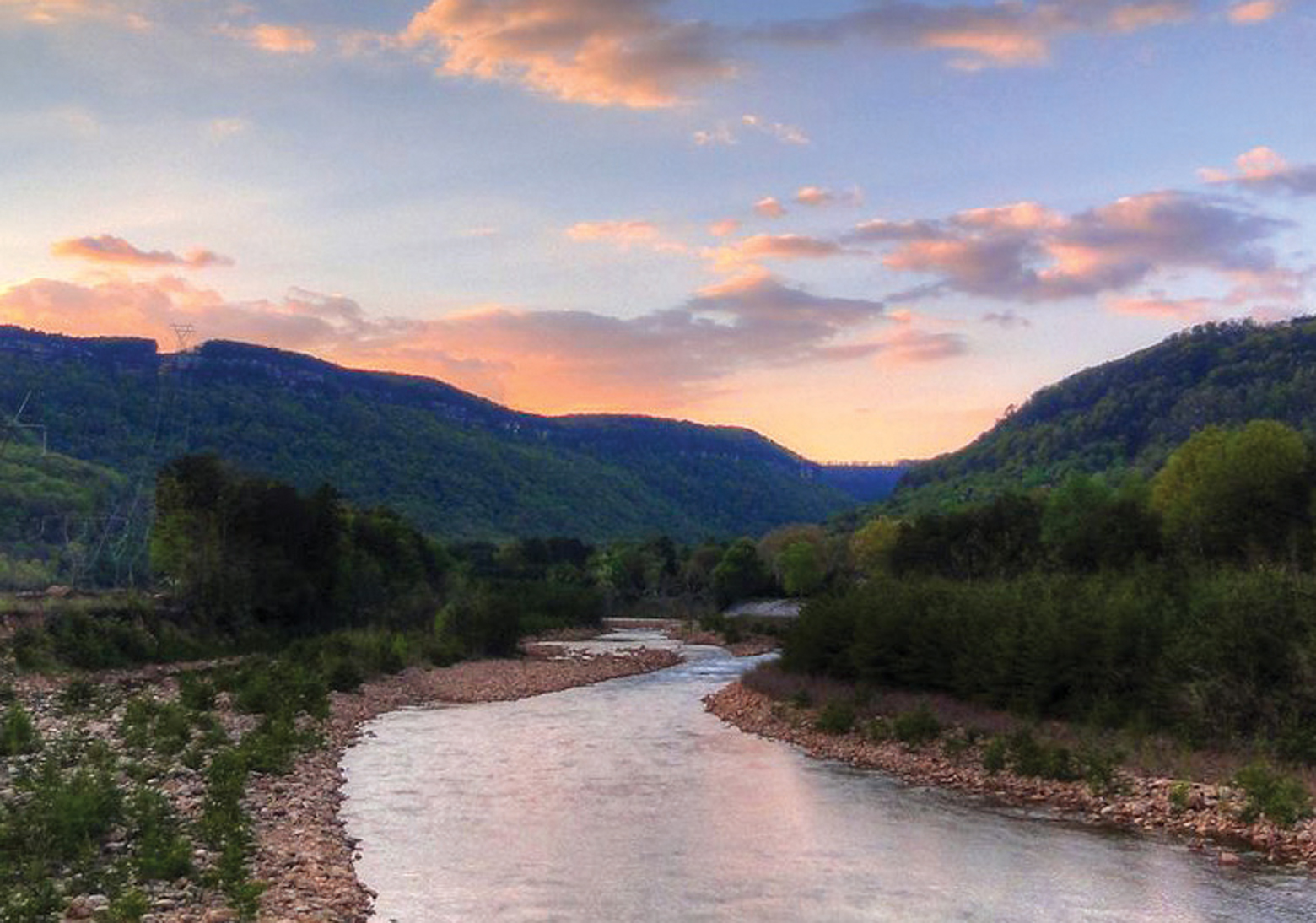
Camping
Only backcountry camping is available within the park, but you would be hard pressed to find prettier spots to enjoy Tennessee’s natural wonders. Three primitive campsites — Stevenson Branch, North Chickamauga and Cooper Creek — require hiking in, and you need to plan your trip so that you arrive at the campsites before dark. Nightly rates to rent the sites vary based on date and availability.
It’s obvious that what Kuykendall wants visitors to know — that the park offers more than the famous Blue Hole — is abundantly true.
“One of the coolest things about the park is that it’s a true wilderness only 20 minutes from Chattanooga,” he says. “The habitats, viewsheds and watersheds are pretty remarkable.”




